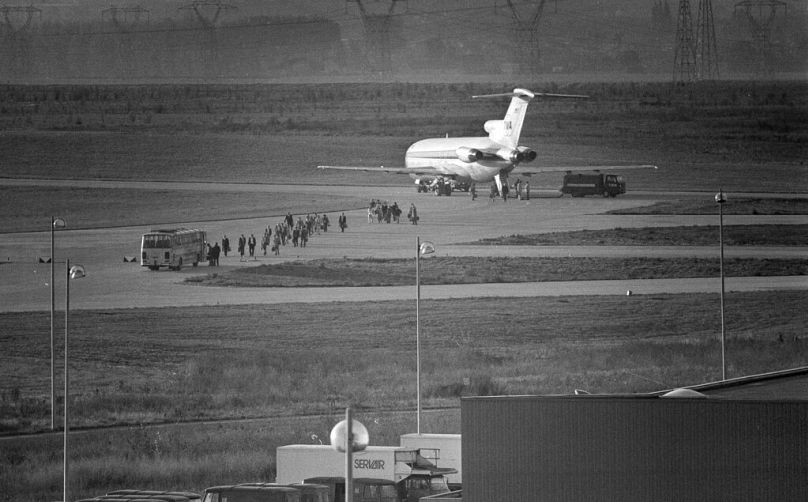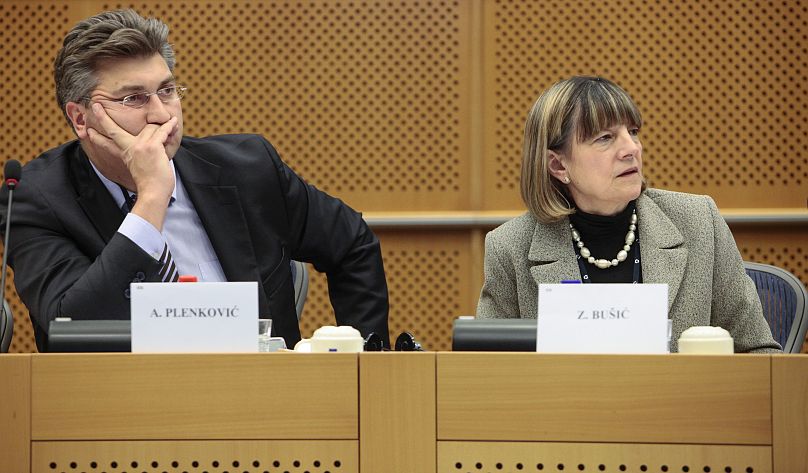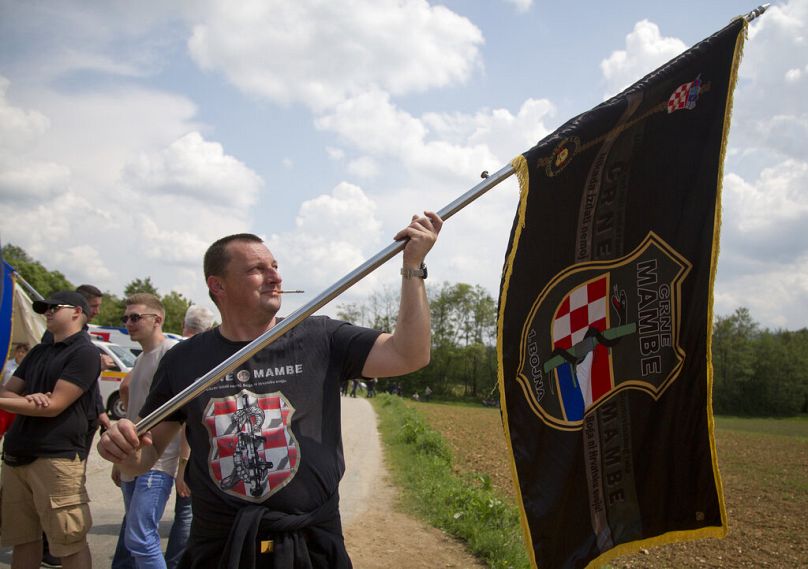Representatives from Croatia have recently been organising events dedicated to or featuring figures with less-than-stellar reputations. Why?
Recently, Croatian MEPs have organised events in Brussels appearing to gloss over controversial issues linked to terrorism and Nazi collaborators from Croatian history.
 ADVERTISEMENT
ADVERTISEMENT
 ADVERTISEMENT
ADVERTISEMENT
Željana Zovko, a representative from the Croatian Democratic Union, or HDZ, attended a seminar last week as part of the European People Party group series of events at the European Parliament.
According to the panel's premise, they would focus on the secret services of former communist nations, since "totalitarian regimes of the past may no longer exist, but their secret services and networks live on," said Zovko.
The event featured a presentation by Zdravka Bušić, a member of the Croatian National Resistance or Otpor during the 1970s, a far-right organisation responsible for several terrorist attacks across the world.
“I’m sure she [Bušić] will contribute significantly to this seminar with her deep knowledge and personal experience on this issue,” Zovko continued.
Otpor was founded by Vjekoslav "Maks" Luburić, the notoriously brutal head of several concentration camps found in the Independent State of Croatia (NDH), a Nazi puppet state that briefly on the territory of today’s Croatia, Bosnia and Herzegovina, and parts of Serbia during World War II.
Zdravka's brother took part in the hijacking of Trans World Airlines plane in September 1976 heading from New York to Chicago and planted a bomb in Grand Central Station in New York City, demanding a plea for Croatia's independence be published in leading US papers.
The plane was rerouted to Montreal and then to Newfoundland, where 35 passengers were released. After negotiations with the US ambassador in Paris, the attackers surrendered.
A New York policeman was killed dismantling the bomb and the perpetrators were convicted of air piracy.
Why was Zdravka Bušić speaking at the European Parliament?
The panel appealed for the opening of the state archives of the former communist secret services, “in order to be able to fully research and address existing communist-era structures and their crimes.”
Bušić and her brother were rehabilitated after the fall of Yugoslavia and Croatia's declaration of independence. She was a representative in the Croatian Sabor and an MEP after Croatia enter the EU in 2013.
In her presentation, Bušić focused on the activities of the state security of Yugoslavia or UDBA, which she accused of committing heinous crimes, including jailing, torturing, and killing those perceived to be engaged in “hostile activities against the state.”
“Many individuals of the young Croatian generation believed that the creation of the independent and democratic state of Croatia was of crucial importance,” she explained at the event.
Bušić failed to directly address – or even mention – the activities that she, her brother, and her husband took part in and were convicted of, despite making several points about the activities of immigrant or diaspora Croatian communities, according to the recording of the event obtained by Euronews.
Why are communist crimes being talked about today?
Busic insisted that the "biological descendants and ideological followers [of communists] hold a lot of power in the modern era" and that communist ideology had left a "clear contamination" on Croatian society.
While at face value the topic of discussion might seem reasonable, what Bušić and other speakers failed to address was the fact that talking about communist crimes continues to be a dog-whistle on the far-right for ultra-nationalists and Nazi apologists promoting ideas that encourage discrimination today.
The talking points are intended to stoke fears and justify their beliefs, says Michael Colborne, a journalist and researcher at Bellingcat who covered Croatia and the Balkans extensively.
“They exploit anti-communist sentiment that understandably exists not just in former communist or socialist countries, but in other places as well,” Colborne told Euronews.
“It's always been a tactic of the far right, dating right back to the original capital-f Fascists in Italy: exploit people's fears of and dislike for communism – real or perceived, justified or not – and offer themselves and their ideas as the only thing that can protect them,” he continues.
“There is a reluctance to openly condemn these crimes because they are perceived to undermine the very identity and security of the nation,” he explained.
According to Colborne, many people will not be able to grasp that for many countries in central and eastern Europe, “their identities and their very existence have been under threat at various points in their recent history, in a way that, for example, my native Canada, the United States, or the UK have not been.”
In March, Zovko participated in organizing an event at the European Parliament to honor Archbishop Alojzije Stepinac. Even though some claim that Stepinac saved members of the local Jewish population while he held the post during the Nazi puppet state of Croatia, he never condemned the Nazi regime and was an early supporter of race laws targeting the Jewish population.
“Condemning these crimes from the past means undermining and threatening not just the identity of, but the very existence of the country today,” Colborne concludes.
Euronews has contacted the Croatian Democratic Union for comment.














